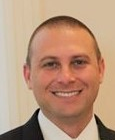
David Daigle is a senior consultant who comes to CMCG from Enercon Services, Inc. providing. David has supported utility clients with a variety of licensing activities, working closely with client’s Emergency Preparedness, Regulatory Assurance, and Licensing organizations. These activities include the development of numerous License Amendment Requests (LARs) for submittal to the Nuclear Regulatory Commission to address each phase of the decommissioning process – including several first-of-a kind submittals to address the phased approach to emergency plan changes during the decommissioning process and submittals to address multiple units with staggered shutdown dates. This support included the development of strategies to support decommissioning at single-unit and multi-unit facilities.
David served as primary author for a significant number of emergency preparedness-related decommissioning submittals including LARs for Entergy Nuclear’s Indian Point Energy Center’s, Vermont Yankee’s and Pilgrim Station’s Post-Shutdown Emergency Plans, as well as Ft. Calhoun Station. He also supported the development of Emergency Plan 10 CFR 50 regulation exemptions and LAR submittals for Vermont Yankee and Pilgrim Station’s Permanently Defueled Emergency Plans.
In addition, David also provided project management, technical support, strategic planning, and consultation for the development of emergency plans appropriate for a Small Modular Reactor (SMR). He was involved with the development regulatory exemptions appropriate for an SMR design with a reduced Emergency Planning Zone (EPZ); support related to a methodology providing a technical basis for determining appropriate EPZ size; and support during NRC review of the Early Site Permit (ESP) Application and during an Advisory Committee on Reactor Safeguards (ACRS) Subcommittee hearing.
For CMCG, David is supporting the PSEG Emergency Planning Decommissioning activities for the potential shutdown of the Salem and Hope Creek.
David has a B.S. in Molecular Biology and Microbiology from the University of Central Florida and previously provided environmental site assessments and remediation services for state and local government and private industry.
